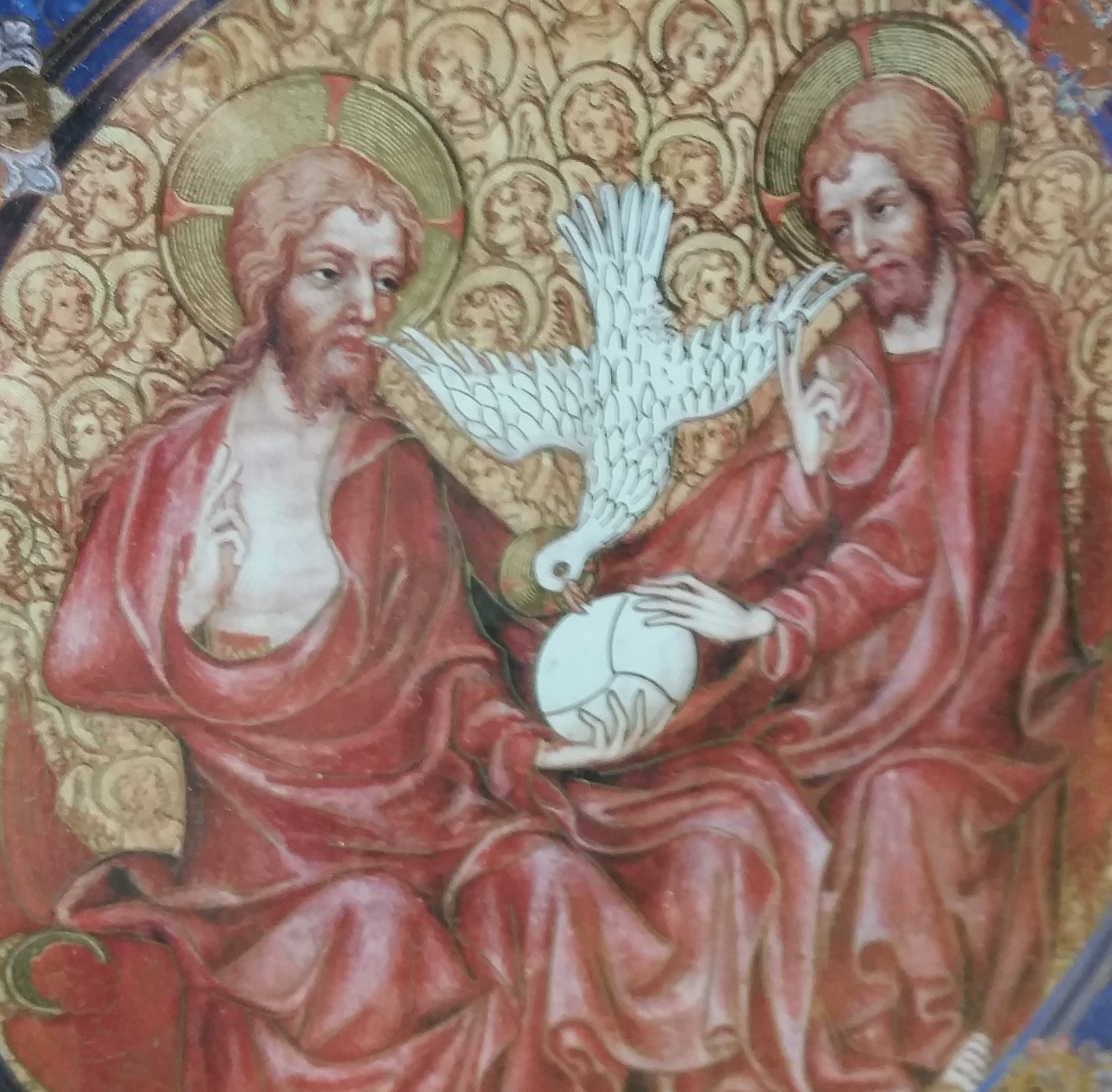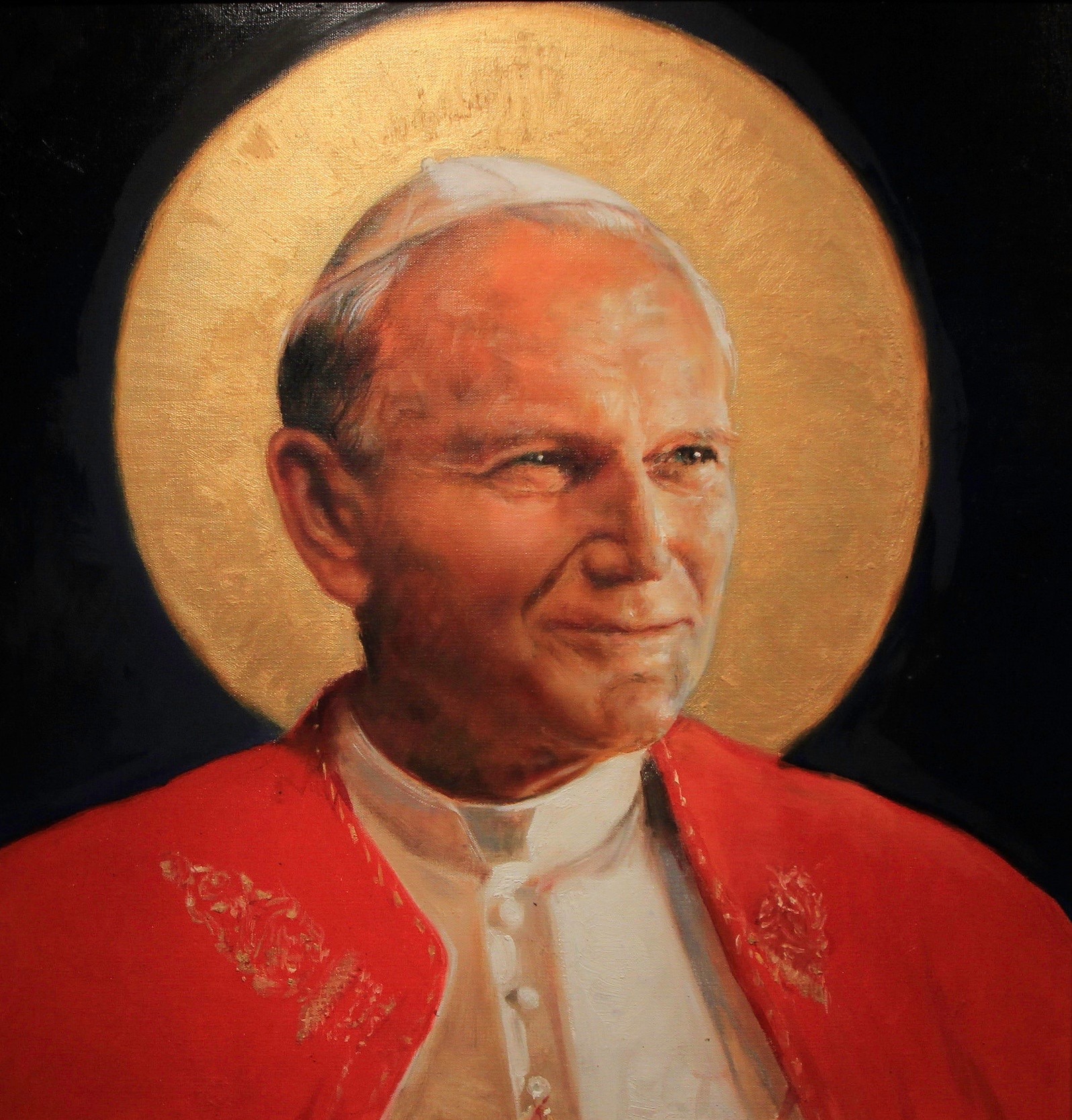St. Pope John Paul’s II: Revelation of the Trinitarian Mystery
Saint Pope John Paul II
Jesus’ relationship with the Father which reveals the mystery of the Trinity, was the subject of the Holy Father’s catechesis.
Here is a translation of his catechesis, which was the fifth in the series on God the Father and was given in Italian.
Being Christian Means Sharing in Life of the Trinity
S tarting with the Son, New Testament reflection and the theology based on it have plumbed the mystery of God’s “fatherhood.” It is the Father who is the absolute principle in Trinitarian life, the one who has no origin and from whom the divine life flows. The unity of the three Persons is a sharing in the one divine essence, but in the dynamism of reciprocal relations that have their source and foundation in the Father. “It is the Father who generates, the Son who is begotten, and the Holy Spirit who proceeds” (Fourth Lateran Council: DS 804).
The Apostle John offers us a key to this mystery which infinitely surpasses our understanding, when in his First Letter he proclaims: “God is love” (1 Jn 4:8). This summit of revelation indicates that God is agape, that is, the gratuitous and total gift of self which Christ proved to us, especially by his death on the Cross. The Father’s infinite love for the world is revealed in Christ’s sacrifice (cf. In. 3:16; Rom 5:8). The capacity to love infinitely, to give oneself without reserve or measure, belongs to God. By virtue of his being Love, even before his free creation of the world he is Father in the divine life itself: a loving Father who generates the beloved Son and gives rise with him to the Holy Spirit, the Person-Love. the reciprocal bond of communion.
On this basis the Christian faith understands the equality of the three Divine Persons: the Son and the Spirit are equal to the Father, not as autonomous principles, as though they were three gods, but because they receive the whole divine life from the Father, and are distinct from Him and from one another only in the diversity of their relations (cf. CCC, n. 254).
A great mystery, a mystery of love, an ineffable mystery, before which words must give way to the silence of wonder and worship. A divine mystery that challenges and involves us, because a share in the Trinitarian life was given to us through grace, through the redemptive Incarnation of the Word and the gift of the Holy Spirit: Anyone who loves me will be true to my word, and my Father will love him; we will come to him and make our dwelling-place with him” (Jn 14:23).
For us believers, the reciprocity between the Father and the Son thus becomes a principle of new life which enables us to participate in the very fullness of the divine life: Whoever confesses that Jesus is the Son of God, God abides in him, and he in God” (1 Jn 4:15). The dynamism of Trinitarian life is lived by creatures in such a way that everything is directed to the Father, through Jesus Christ, in the Holy Spirit. This is what the Catechism of the Catholic Church stresses: “The whole Christian life is a communion with each of the Divine Persons, without in any way separating them. Everyone who glorifies the Father does so through the Son in the Holy Spirit” (n. 259).
O.R. 3/17/99 John Paul II


The first image is of the Trinitarian Mystery. Note: The Son is made in the image of the Father, so the Father and Son look alike. The Son sits at the right hand of the Father. Both are holding the World, the Children of God the Father. The Holy Spirit’s wings touches the mouth of both the Son and the Father as they speak the Word of God.
The dynamism of Trinitarian life is lived by creatures in such a way that everything is directed to the Father, through Jesus Christ, in the Holy Spirit.
Vol. #010 September 2021


